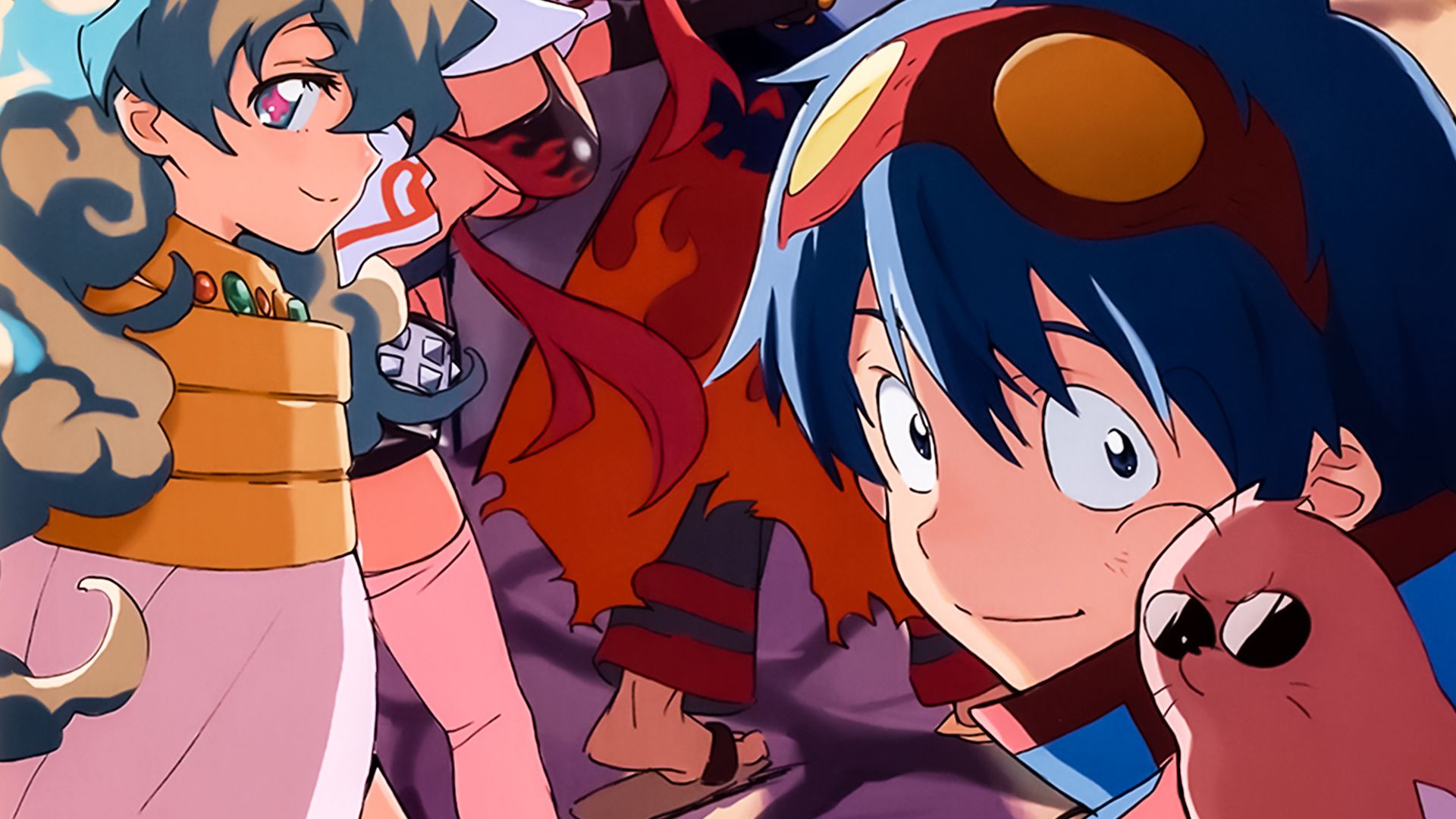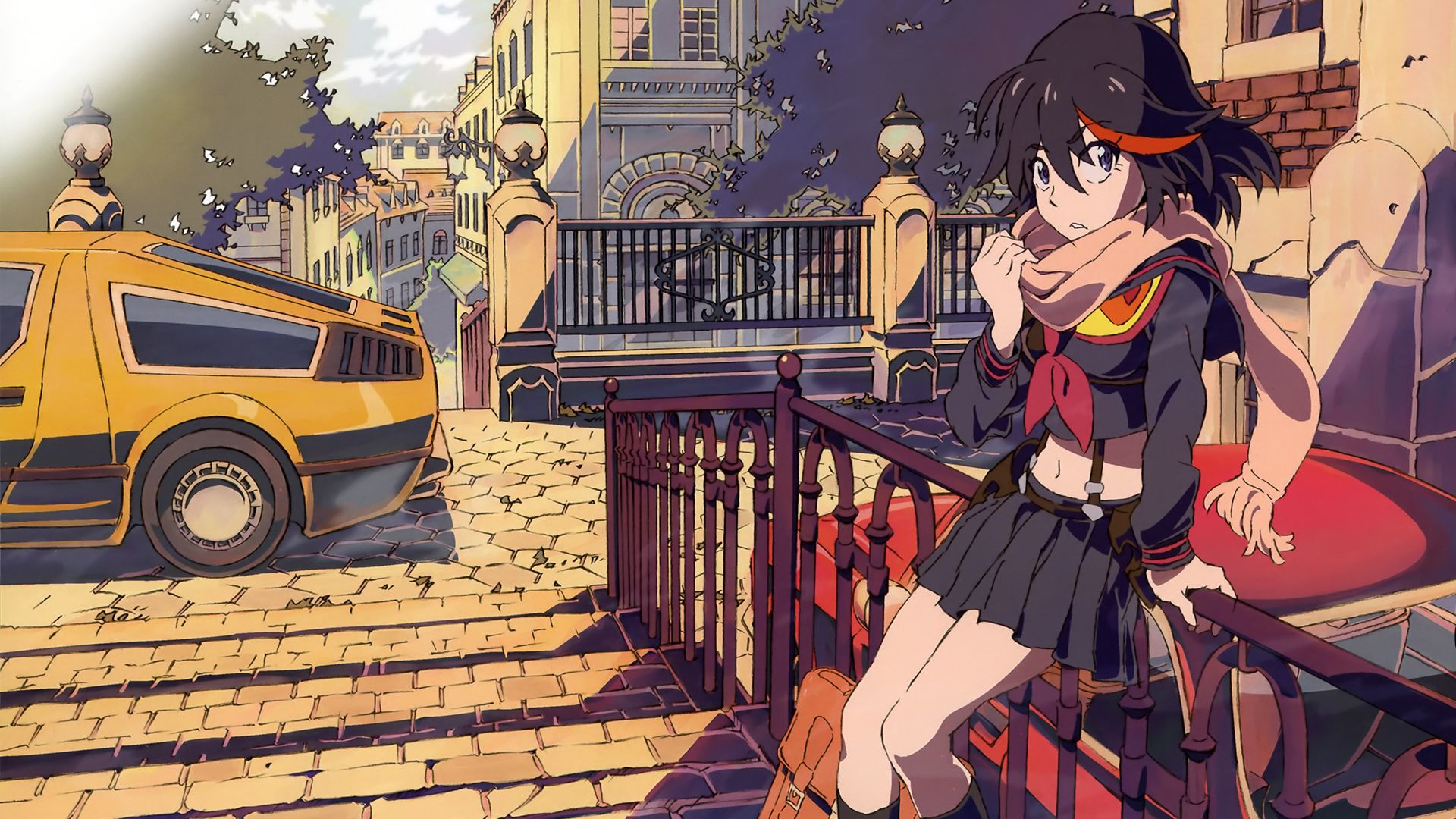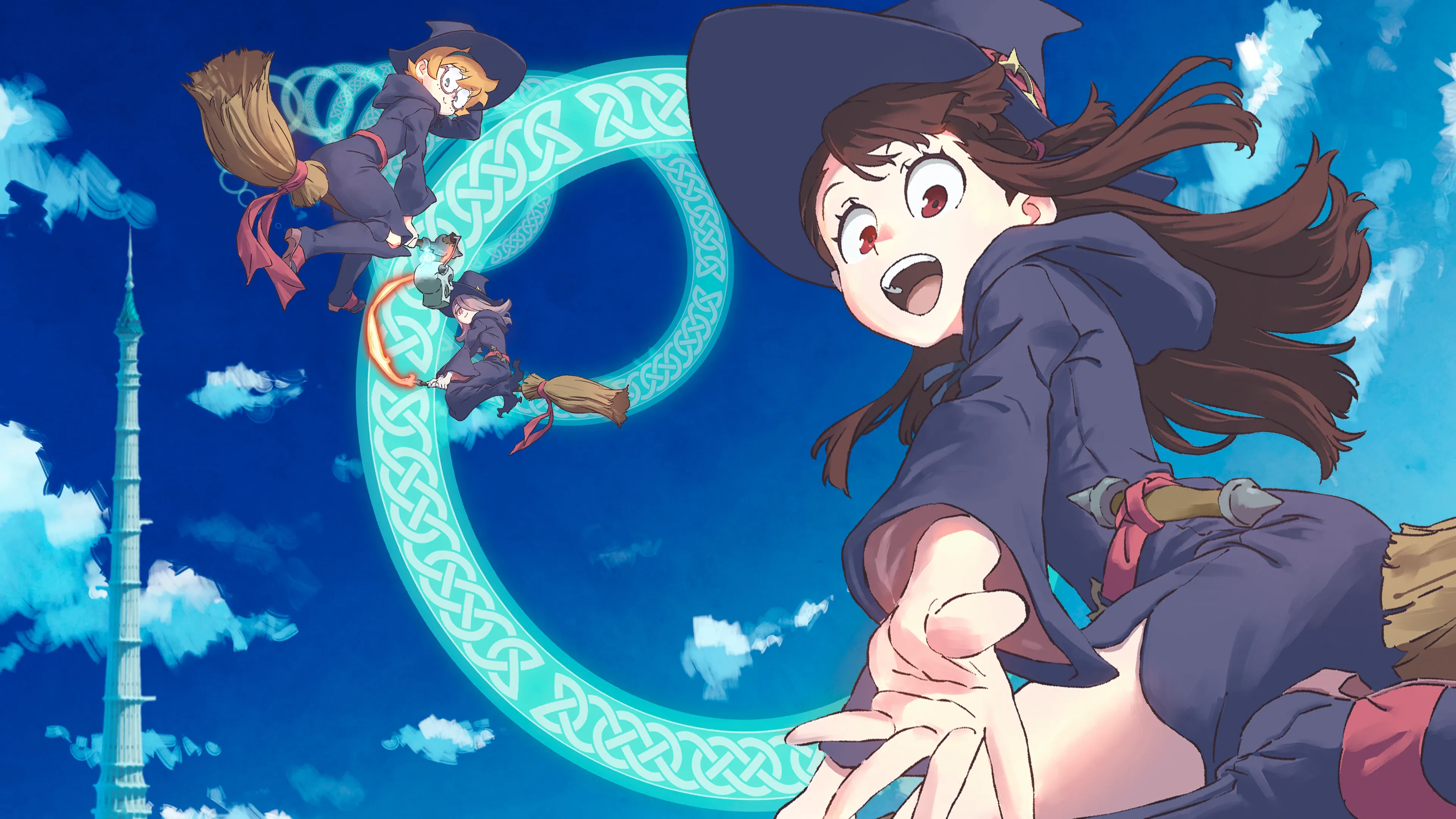Studio Trigger, one of the most legendary Japanese animation houses in the world, celebrates its tenth birthday this week. While it has admittedly produced a handful of stinkers, these are far outweighed by films, shows, and OVAs that will go down in history as some of the most beloved anime of all time. Promare, Little Witch Academia, Kill la Kill, Space Patrol Luluco, and Darling in The Franxx are just a few of the productions Trigger has either helmed or had a substantial hand in, and all of them possess a sense of style that is unmistakable.
The studio has also contributed an independent film to upcoming anthology series Star Wars: Visions, and is working on a full-length series based on Cyberpunk 2077. Both of these projects provide concrete proof of its global influence and how the talents of Hiroyuki Imaishi, Hiroshi Kobayashi, and Yoh Yoshinori will go down in history. As this new milestone comes into view, I want to look back on the impact of Studio Trigger and how its works have become so essential to the legacy of anime. It all started with a little show called Gurren Lagann...
First airing in 2007 and created by Gainax - the same studio responsible for the likes of Neon Genesis Evangelion and His or Her Circumstances - Gurren Lagann was the project that defined the core identity of Studio Trigger. Its lovable characters, overzealous aesthetic, and unpredictable pacing would become hallmarks of the studio, later emerging in other works such as Panty & Stocking. In fact, Lagann was so successful that it eclipsed what Gainax was capable of at the time, its economic and cultural significance acting as a springboard for Studio Trigger.
Trigger was founded in 2011 - although its creative output in the first few years was rather understated, everything it managed to produce landed with a magnificent splash. Little Witch Academia’s debut OVA was a masterpiece, taking inspiration from the likes of Harry Potter and combining it with beloved anime archetypes to create something wonderfully wholesome. To this day, Akko, Sucy, Lotte, and company are spellbinding, digging into the hearts of viewers and refusing to leave. It would be a few more years until they received a fully fledged series of their own, but I’d argue it was worth the wait, especially when you consider their initial outing was only made possible by crowdfunding campaigns that were eagerly supported by fans.
Kill la Kill was the studio’s first original series, a bold, provocative, and creative action experience that is still being referenced and built upon to this day. Trigger’s character designs and worldbuilding are so iconic they became part of the zeitgeist almost instantly. Some of the show’s characters are sexualised a little too much, and the scattershot animation can result in some sequences being breathtaking while others feel both inconsistent and unfinished. It’s an unfortunate side effect of Trigger’s ambition, although reaching for the glass ceiling often results in the studio breaking through it and ascending to the stars. This approach is far better than just settling for what’s acceptable, which is something many animation houses nowadays are happy to do.
I’d be here all day if I touched upon everything Studio Trigger has done in the past decade, so I’m just going to explore its biggest hitters and the impact they had on the wider industry. Little Witch Academia received its own original series in 2017 with the help of Netflix, with the streaming giant pumping funding directly into the studio. This resulted in the production of Promare, Trigger’s first feature film and an imaginative explosion of queer-coded brilliance that is undoubtedly one of my favourite films of the past few years. It’s wonderful, revolving around a himbo firefighter and his crew of misfits going up against a vigilante group known as the ‘Burnish’ who seek to exist in a world that does nothing but demonise them. The film isn’t subtle in its political messaging, opting for thematic elements that match the bombast of its colourful, expressive animation. It’s also very gay, which totally isn’t the reason why I’m so smitten with it. No matter how you slice it, this is Trigger’s biggest work to date, and is arguably what led to its upcoming collaborations with Disney and CD Projekt Red.
Studio Trigger has also done a hefty amount of supplemental work for games, films, and shows outside of anime. It had a hand in select episodes of Steven Universe and the opening cinematics for both Indivisible and Shantae and the Seven Sirens. It’s a company that sits at the top of the anime pantheon, yet is also surprisingly honest about the political reality of operating in an industry where animators are underpaid and there’s a constant pressure to produce shows that adhere to the seasonal model. You’d be blown away by how many shows air each season only to fade into obscurity, with only a handful of juggernauts breaking into the Western market and making a substantial impact. With a few exceptions, the vast majority of Trigger’s projects have managed this, and with its reputation now firmly established, everything it does is met with eager anticipation.
Its tenth anniversary project, SSSS.Dynazenon, arrived earlier this year and felt like a true passion project for the studio. Part of me would love a sequel to Promare or for Studio Trigger to build upon its existing works, but much like Supergiant Games or Hideo Kojima in the world of games, there’s a sort of excitement in waiting to discover exactly what it will do next. We know it will be wild, unexpected, and that it will push boundaries in ways we haven’t seen before - that’s precisely why Studio Trigger is so wonderful. I also can’t wait to see what it does with a world as ripe with potential as Cyberpunk 2077, since it stands a chance at doing it more justice than the game ever could.
After reading this piece, I hope you can recognise how important Studio Trigger truly is to the world of anime, and how so many of its works - whether under this new name or as part of Gainax - will go down in history as essential cultural artefacts. Anime series can either be absolutely garbage or unmatched examples of perfection - this is why it’s so vital to highlight examples of the latter in order to make them more approachable and appreciated on the global scale. Go and check out some of Studio Trigger’s work, I promise you won’t regret it.

-2.jpg)


